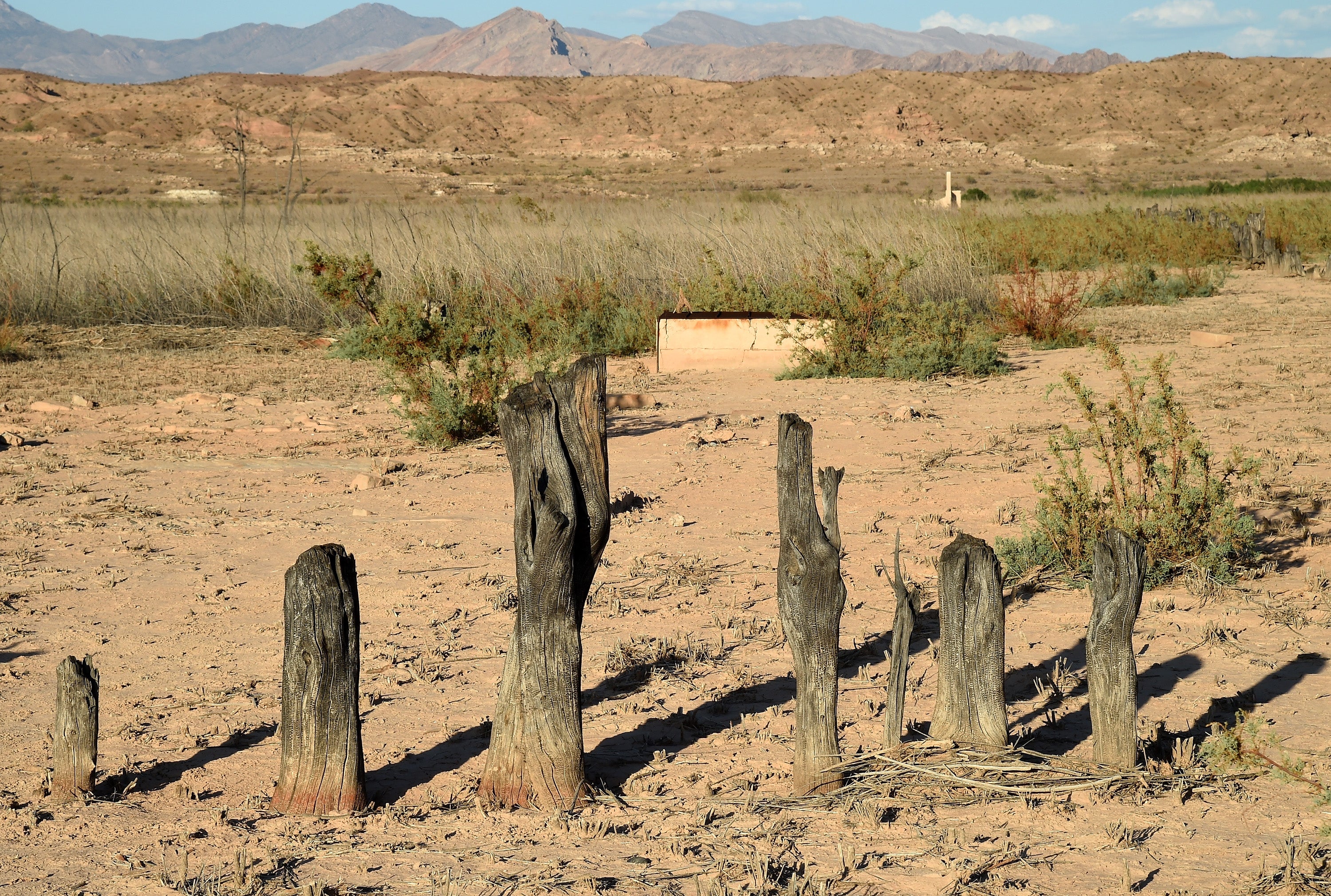‘Mega-drought’ on Colorado River system that supplies 40million people causes water level at famous Hoover Dam to drop by 130 feet
The Hoover Dam, scene of many Hollywood films, is experiencing dire levels of drought that could lead to power shut downs, new report claism

Your support helps us to tell the story
From reproductive rights to climate change to Big Tech, The Independent is on the ground when the story is developing. Whether it's investigating the financials of Elon Musk's pro-Trump PAC or producing our latest documentary, 'The A Word', which shines a light on the American women fighting for reproductive rights, we know how important it is to parse out the facts from the messaging.
At such a critical moment in US history, we need reporters on the ground. Your donation allows us to keep sending journalists to speak to both sides of the story.
The Independent is trusted by Americans across the entire political spectrum. And unlike many other quality news outlets, we choose not to lock Americans out of our reporting and analysis with paywalls. We believe quality journalism should be available to everyone, paid for by those who can afford it.
Your support makes all the difference.A “mega drought” in the Colorado River system has caused the water level at the iconic Hoover Dam to drop by 13-stories in the last 20-years, a new report has claimed.
The river provides water to 40 million people across seven states, including Las Vegas and Phoenix, as well as large parts of Southern California, according to CBS.
But following decades of drought caused by the climate crisis, Lake Mead, the country’s largest reservoir that fills the famous Hoover Dam, is currently at just 37 per cent capacity.
Water authorities in Nevada have sounded the alarm that the water level at the dam, completed in 1936 to provide hydro-electric power and scene of many Hollywood movies including 1978’s Superman and 2002’s Solaris, has plummeted by 130-feet since 2000.

The federal government is expected to declare an emergency later this year that could force water shut offs in Nevada and Arizona as early as 2022, starting with farmers and businesses, rather than residents.
Pat Mulroy, the former head of the Southern Nevada Water Authority, told CBS it was “an enormous wake up call”.
Ms Mulroy added: “We’re at a tipping point. It’s an existential issue for Arizona, for California, for Nevada. It is just that simple.”
Arizona farmer Dan Thelander told CBS that by 2023 they expected to lose all their water.
He said: “If we don’t have irrigation water, we can’t farm. So, next year we are going to get about 25% less water, means we’re going to have to fallow or not plant 25-per-cent of our land.The future here is, honestly I hate to say it, pretty cloudy.”
The dire situation at Lake Mead has largely been caudsed by the even more dire situation at Lake Powell, which usually feeds it but is at 34-per-cent capacity, as reported by USA Today.
Mike Bernardo of the federal Bureau of Reclamation, told USA Today that the arrival of the dam in the 1930s was an engineering marvel that “controlled the Colorado’s floods, opened arid lands for farming and fed the rise of cities across the Southwest.”
He said: “Unfortunately, due to how dry things have been, what we’re seeing is Lake Powell’s elevations are dropping.”
Join our commenting forum
Join thought-provoking conversations, follow other Independent readers and see their replies
Comments